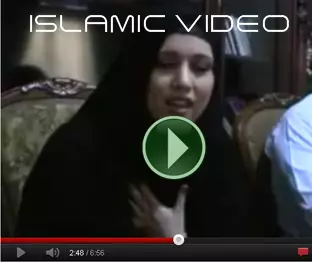THE jury is still out on whether French voters will cast their ballot in favour of incumbent Nicolas Sarkozy or opposition leader François Hollande in the French presidential polls on May 6.
In an acrimonious television debate on May 2, the two men locked horns on an array of issues, often demonstrating their clear dislike and loathing for each other. Mr Sarkozy repeatedly called Mr Hollande “a liar”. Mr Hollande in turn castigated Mr Sarkozy for playing the victim and not taking responsibility for his actions and policies.
The sparring between the two men makes good entertainment. But French politics is not just fun and games. Watching Sarkozy and Hollande from the sidelines is Marine Le Pen, the leader of the far-right French National Front, who stunned observers by winning nearly 18 per cent — or over 6.4 million ballots — in first-round presidential voting on April 22.
Ms Le Pen has not made it into the second round of voting of course. But her xenophobic, anti-Islam and anti-immigration views, have cast a deep shadow over the election campaign — and are likely to dominate the French political agenda for years to come.
The 43-year-old daughter of FN founder Jean-Marie Le Pen is clearly pleased at the sight of Mr Sarkozy and other French mainstream politicians agonising over how to reach out to the voters of a far-right party which may have been considered a pariah group in the past but is now much too popular to ignore.
“I believe we will one day be in power, because one day our views and ideals will be those of the majority in France. Our ideas are gaining ground very rapidly, as we’ve now seen,” said Le Pen recently.
Le Pen is not the only far-right European politician to succeed in ‘de-demonising’ extremist political parties which were once shunned by mainstream political leaders for their anti-foreigner and anti-Semitic views.
In the Netherlands, far-right leader Geert Wilders has been pulling the strings of government for several months. His decision last month to stop supporting budget cuts proposed by prime minister Mark Rutte brought down the government. Now Wilders, who rose to international prominence in 2008 with his movie denouncing Islam, plans to turn September’s elections into a vote on Dutch attitudes about Europe and the single currency.
As Le Pen and Wilders showed off their political clout, the self-described anti-Muslim militant, Anders Breivik, went on trial in Norway for the massacre of 77 people last year.
Breivik told the court his victims had betrayed Norway by opening the country to immigration and called for a “patriotic” revolution aimed at deporting Muslims from Europe.
The rise of Europe’s far right has often been overlooked as the continent battles to impose austerity, combat high unemployment rates and ease concerns about globalisation. No longer. Skilled far-right leaders like Le Pen and Wilders are recruiting new followers not just because of their shrill anti-Muslim views. They are also turning the heat on the European Union which they see as disconnected from the concerns of common people.
Still, it’s their success in propagating their toxic views on Islam and Muslims that is especially disturbing. Over the past year, David Cameron, Angela Merkel and Nicolas Sarkozy — centre-right leaders — have given speeches proclaiming that multiculturalism in their respective countries has proven a failure.
Populist, xenophobic and anti-Islamist parties are now represented in legislatures from Belgium, the Netherlands and Italy to Finland, Sweden and Switzerland. In Germany, Thilo Sarrazin, a former board member of the Bundesbank, one of the nation’s most venerated institutions, caused a furore in 2010 with a bestselling book that portrayed German identity under threat from Muslim immigrants.
The reasons for this rising xenophobia are not difficult to understand. Europe is uneasy about its future, its mood soured by the economic slowdown, the euro sovereign debt crisis and public anxieties about the impact of globalisation on European jobs. But there is a disconnect. In fact, despite the anti-Islam rhetoric gaining ground across Europe, the current picture is not as grim as often depicted. The last 10 years have actually been marked by transition and change in the lives of European Muslims as both mainstream society and Muslim communities have confronted difficult issues of integration and multiple identities that had been neglected and overlooked for decades.
European government and business recruitment policies are being gradually changed to increase the employment of Muslims and minorities. In fact, business leaders are demanding an increase in immigration, including that from Muslim countries, to meet Europe’s skills shortage, and in the most recent Lisbon Treaty, the EU adopted a new anti-discrimination directive that strengthens existing rules on combating racism.
For their part, European Muslims are becoming significantly more active in demanding equal rights as fully fledged citizens, organising themselves into pressure groups and emerging as influential politicians, entrepreneurs and cultural icons. However, this slow but steady recognition that all Europeans, whatever their religion, ethnic origins and cultural background, share a common space has not been translated into a rallying and attractive narrative which can dispel misperceptions between European Muslims and non-Muslims.
Developing a new discourse on Islam and Muslims requires the joint efforts of politicians and policymakers, scholars as well as religious leaders, civil society organisations, business representatives and the media. It means highlighting that Europe is a truly diverse continent which celebrates all its citizens, regardless of race and religion.
I know that there is little room for inspiring and visionary messages in the rough and tumble world of politics, especially in France. However, it would have been heartening to hear Mr Sarkozy and Mr Hollande espouse such inclusive views in their electoral discourses.
SOURCE:DAWN.COM














